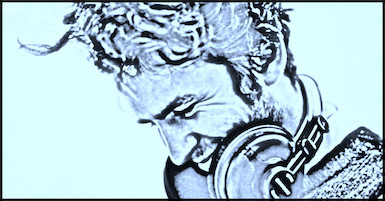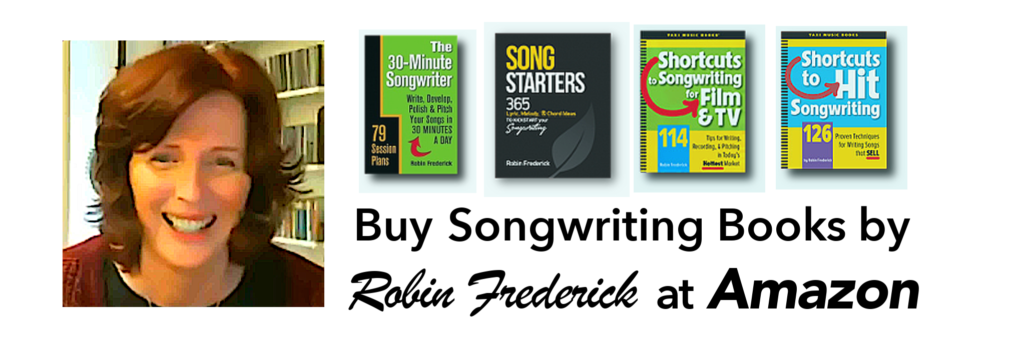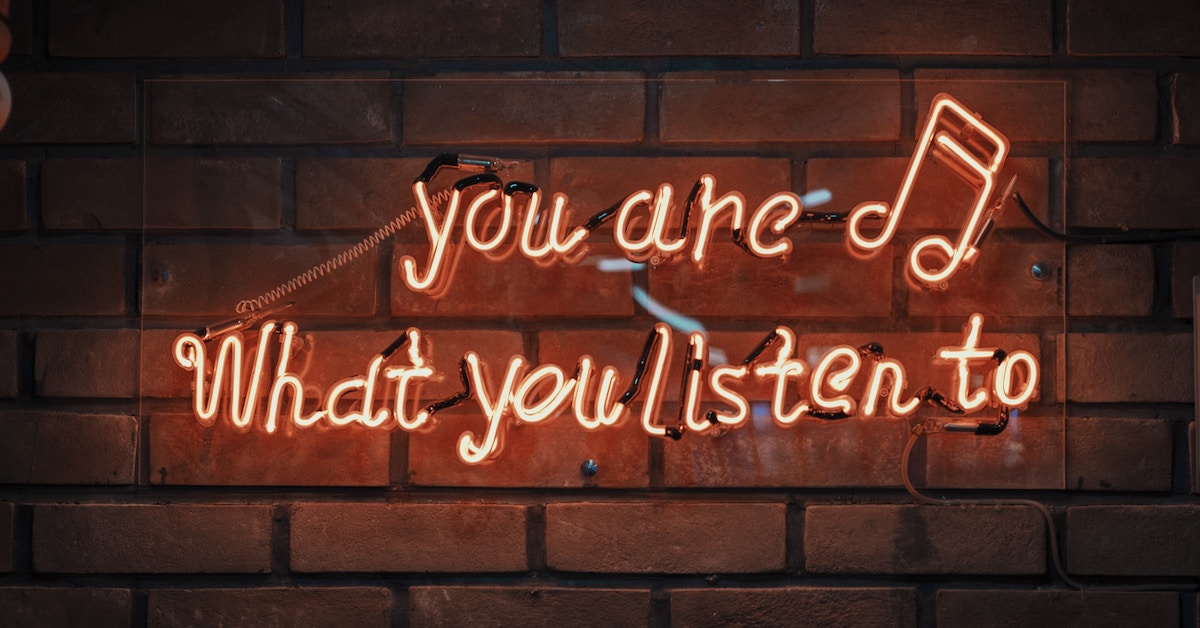I’VE BEEN STUDYING TODAY’S TOP RADIO HITS AND SUCCESSFUL FILM & TV SONGS TO BRING YOU THE LATEST SONGWRITING TRENDS AND TOOLS.
My students and clients have had song placements in movies, prime time TV, artist cuts, and hundreds of thousands of streams on Spotify. Get started on your songwriting journey and find out how far it will take you!
On this site, you’ll find over 125 HOW-TO TIPS and SONG STARTERS! Each one will help you write songs that express your thoughts and feelings while giving your style a contemporary, commercial edge. And be sure to check out my Hit Song Guides where I reverse-engineer 50+ hit songs to show you how they did it.
Songwriting tools you can use…
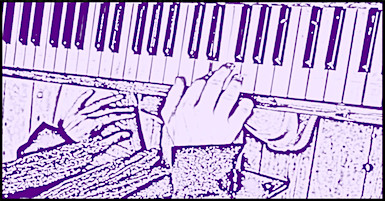
WRITE FAST. WRITE BETTER
A 3-Stage Rocket to Lyric Writing
Should I Write or Should I Listen?

WRITING LYRICS & MELODY
NEW! Give Your Old Lyrics a Makeover
Can You Use AI to Write Lyrics
Write a Song If You Don’t Play an Instrument
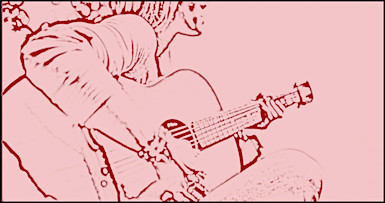
SONG STARTERS & PRACTICE SESSIONS
6 Songwriting Practice Sessions
30-min. Sessions: Solve a Problem
Check out my online Songwriting Courses
You’ll love my affordable, self-paced ONLINE COURSES!
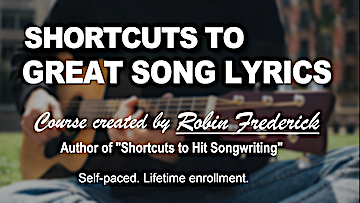
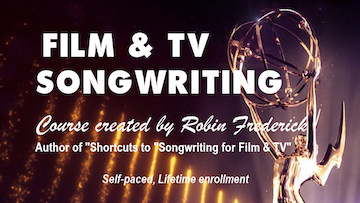
- Learn the secrets of hit songwriting.
- Use the songwriting exercises to launch or finish songs.
- Get access to workshops and private feedback.
- Write expressive songs listeners will love and the music industry needs.
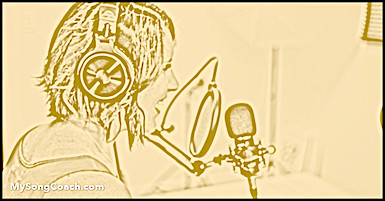
FILM & TV SONGWRITING
Universal Lyrics for Film & TV
Write Songs for TV Commercials
Your Songwriting Coach
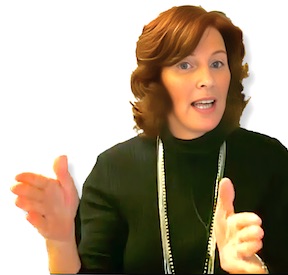
I’ve been studying hit songs for over 20 years. You can read 50+ of my Hit Song Guides on my Songwriting Tips & Inspiration website. In addition, I’ve been a record label executive, Film & TV songwriter with hundreds of credits, a music producer, and a working songwriter for my entire career.
My books—Shortcuts to Hit Songwriting and Shortcuts to Songwriting for Film & TV— have been used to teach the craft of songwriting at Musician’s Institute, Belmont University, and many more schools around the world. Through TAXI.com, I trained hit songwriters and music industry professionals to give feedback to thousands of aspiring and successful songwriters.
Over the years, I learned that many hit songwriters can’t really explain how they do it. So, I dug down to see if I could find some answers. I’ve gathered as much information as I could and poured a lot of it into my books and websites. Have a look around and then get started on your hit songs!

